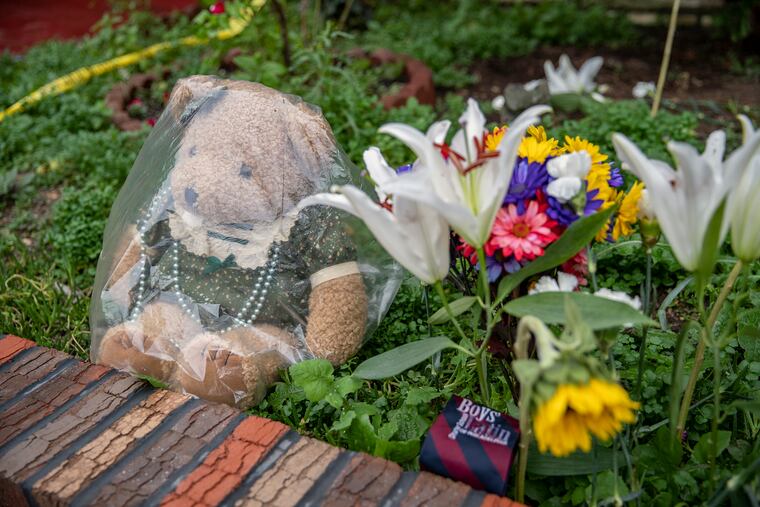Tragedy a too-costly lesson about mental health treatment access | Editorial
It's time for action matching words about the importance of better, more affordable, and more accessible mental health treatment.

Even by Philadelphia’s standards, the Oct. 29 killing of Janet Woodson, her two young sons, and her husband in their Cedar Park home was a horrific crime. The charging of her eldest son, Maurice Louis, with four counts of murder deepened the city’s grief. But after the Inquirer reported that Janet Woodson brought Louis, who struggled with addiction and other mental health issues, to a crisis center the night before she died — and had to take him home without the help he needed — the tragedy looks more like a travesty. And it suggests how easily a profoundly disturbed human being in desperate need of help can simply slip through the cracks in a system that clearly is not up to the many tasks we ask it to perform.
There are plenty of questions, particularly about how the crisis center of Mercy Fitzgerald Medical Center handled the case, and why the center had been able to continue operating despite having flunked successive state inspections since 2016.
But this heartbreaking case mostly demands that we do more than point fingers, express shock, or offer sympathy. It requires leaders to do more than nod to mental illness as they inevitably do after mass slayings. It requires all of us to push for affordable and accessible treatment for depression, behavioral disorders, and serious mental illnesses like schizophrenia, with which Louis previously had been diagnosed.
In recent years, gun violence and opioid addiction have dominated the conversation about mental illness, but the fact is, more than 47 million American adults experienced a mental health disorder in 2018. While we may have come a long way from stigmatizing and institutionalizing the mentally ill -- lately, even Philly police and fire officials and Philly teachers are speaking out about the value of counseling -- stigma remains, which encourages silence around the issue. Coupled with failures in the health care system, that silence is dangerous.
» READ MORE: Shooting moves Inquirer photographer who captured family’s grief
Compounding the danger is lack of access. An alliance of health care providers, including the American Psychiatric Association, are among those sounding the alarm about record rates of suicide and drug-related deaths, a crisis made worse by inadequate access to mental health care.
People who need help don’t know where, or how, to look for it: A 2018 study by a nonprofit provider of treatment concluded that access — for example, merely being able to get an appointment — continues to be a barrier. In-patient care is even more difficult; the Substance Abuse and Mental Health Services Administration (SAMHSA) recently cited accelerated closure of state psychiatric hospitals as a continuing problem. In Pennsylvania, public spending on mental health services has not gotten an appreciable boost in a decade. As recent developments in addiction treatment demonstrate, the mental health field needs to evolve as well. But innovative new approaches ought not be limited only to those with gold-plated private insurance coverage.
The tragic ending aside, Janet Woodson and her family struggled with and suffered through a crisis that far too many families live with. We must do better to acknowledge this suffering, and demand more attention and resources to mental health -- beyond lip service.